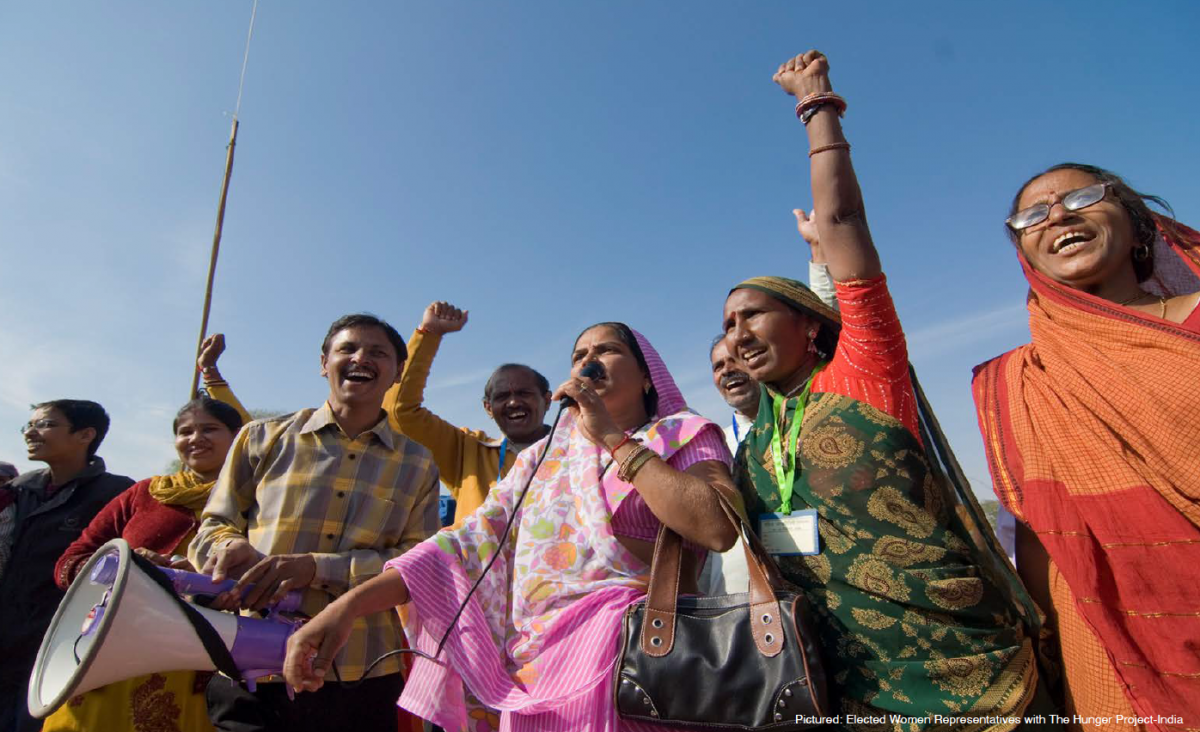June 3, 2020
What would our economies look like if their aim was to guarantee that everyone can live life with dignity while respecting planetary boundaries—rather than solely boosting GDP growth? What would this mean for how our societies could be organized and resources distributed fairly—to the benefit of all?

These questions are at the heart of CESR’s new strategy, out today. Our ambitious new goal is to envision a rights-based economy and catalyze action towards it—taking into account the confluence of political, economic, climate, and health crises we now face. Our strategy sets out the steps we will take over the next three years to tackle the root cause common to these crises: the unjust distribution of wealth and power—within and between countries—that fuels inequalities of all kinds and deprives billions of people around the world of their rights.
COVID-19 has brought the long-standing concerns animating our strategy into even starker relief. The deep structural inequities of our current neoliberal economic model are accelerating—and being accelerated by—the pandemic. Decades of deregulation, privatization, and financialization have concentrated economic and political power in the hands of a shrinking number of powerful individuals and corporations. The result? Without well-functioning public services and a proper social safety net, billions of people around the world are denied access to life’s essentials—a decent livelihood, sufficient food, proper sanitation, clean water, housing, and health care—which governments have a duty to ensure to all people under international human rights law. Deep-rooted discrimination on grounds such as gender, race, citizenship and disability have increased the burden of deprivation and impoverishment on already disadvantaged communities.
This is a moment ripe for mobilization towards systemic change. Economic solutions that would have been unthinkable a short time ago are now on the table and there are growing calls for a “just recovery” to COVID-19 in order to “build back better.” But policymakers are unlikely to deliver on these calls without active cross-movement mobilization. We believe that strategies and tactics grounded in a holistic and progressive vision of human rights—one that centers people’s inalienable socioeconomic rights—can play an important role in achieving this.
In support of our goal to advance a rights-based economy, we will focus our energies on three programmatic objectives we’ve set ourselves for the next three years:
1. Aligning around a vision for a just economic transition. We will work with partners across movements — economic and environmental justice, international development, labor and human rights — to co-design a blueprint for a rights-based economy. Key pillars of this will include: human and ecological wellbeing, including of future generations; effective provisioning of public goods; robust worker protections; meaningful democratic control over public finance; redistributive policies to redress entrenched inequalities; and reforms in global economic governance.
2. Developing cross-movement approaches. The scale of change we seek cannot happen without a critical mass of groups working toward it. To foster cross-movement collaboration across different strands and silos of civil society advocacy, we will build up literacy in linking human rights to economic justice. From Afro-descendant communities in the Andean region to groups bearing the brunt of resource extraction in Southern Africa, we will deploy innovative methods to highlight the human impacts of specific economic policies in different settings in order to reveal the systemic flaws fueling inequality and deprivation worldwide.
3. Boosting our collective counter-power to advance fiscal justice. Disparate movements are increasingly converging around the call for progressive tax systems that ensure powerful corporations and wealthy individuals pay their fair share, and for budget policies that redress inequalities and ensure government accountability—demands made all the more pressing by the current crisis. To build greater momentum around this agenda, we will consolidate and expand the coalitions we have helped convene with human rights and economic justice allies, strengthening alliances with labor and women’s rights movements on these issues.
At the core of our strategy is the conviction that human rights standards and strategies can be used effectively to challenge the socioeconomic inequalities and injustices the current crisis has made manifest. Yet, we recognize that to many progressive actors, human rights are seen as technical, depoliticized, elite and, in some instances, “Western”—particularly when invoked selectively. This has limited how much success the human rights community has had in making common cause with economic, environmental and other natural allies. Our work will tap the potential of human rights—particularly economic and social rights—as a redistributive and transformative agenda, in order to shift the narrative about the role human rights can play in advancing systemic economic change.
We’re excited about the potential long-term impact of our strategy and the important work it has already begun to spur in response to the current context of COVID-19. Other activities we’ll undertake to deliver on the strategy include consolidating our methodological tools; building up our body of comparative country-level research; and contributing to global advocacy on critical fiscal policy issues. We are also developing an organizational learning agenda that will allow us to adapt the strategy in response to changing contexts or shifting assumptions.
We are extremely grateful to the many allies and partners around the world who provided extensive inputs and feedback during the strategy design process. Particular thanks to our Reference Group, which included members of CESR’s Board and Advisory Council, and acted as a valuable sounding board throughout the process. Dirk Slater also played an instrumental role in facilitating our internal reflection. The groundswell of encouragement we have received on the strategy—and the gravity of the context in which it was developed—have both strengthened our resolve to rise to the urgent challenge of putting rights at the center of our economies.
Image: Elected Women Representatives with The Hunger Project-India